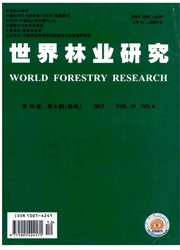

 中文摘要:
中文摘要:
北方森林作为气候变化最敏感的陆地生态系统之一,近些年来随着林区气候变暖,林火发生的数量和过火面积都呈显著的增加趋势,因此研究北方森林林火发生驱动因子及其变化趋势对维护其生态系统的稳定具有重要意义。文中主要从北方森林林火发生的主要控制因子和未来气候变暖条件下林火发生的预测方法及变化趋势进行综述。研究结果表明,林火的驱动因子既包括在大尺度上气候的作用,也包含植被、地形、可燃物和人类活动等局部尺度的影响。近几年来对气候变暖下林火状况趋势预测更倾向综合考虑气候和局部控制因子的作用。对我国而言,需要在更大的区域尺度上开展林火发生预测的研究。研究认为,北方森林林火变化趋势及预测研究的关键问题在于如何在不同空间尺度上确立林火发生的关键控制因子以及完善现有的林火预测方法。
 英文摘要:
英文摘要:
As one of the most sensitive terrestrial ecosystems to the climate change, boreal forests have evidently increased fire frequency and burned area in recent years. Therefore, it is of great significance to quality fire controlling factors and predict fire dynamics for maintaining the stability of the boreal forest ecosystem. In this study, we reviewed the major controlling factors to the fire occurrence, and the methods to predict fire occurrence and its dynamics under climate change scenarios. Previous studies showed that the large-scales fire controlling factor is climate, whereas the local-scale factors include vegetation, available fuels, topography and human activities. The recent prediction of forest fire dynamics under the global climate warming attaches more importance to the roles of climate and local-scale controlling factors. In boreal forests of China, it is essential to conduct the fire re,me prediction at a larger scale. This study pointed out that the key problem of boreal forests fire regimes prediction is how to determine the key fire controlling factors in multiple scales and how to improve the existing methods of fire prediction.
 同期刊论文项目
同期刊论文项目
 同项目期刊论文
同项目期刊论文
 期刊信息
期刊信息
